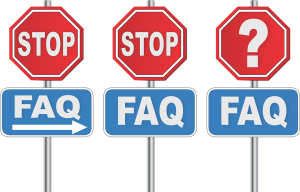Q: What is the Disclosure and Barring Service?
A: The Disclosure and Barring Service is usually abbreviated to DBS. This is the government body in England and Wales which organises police checks. The government set up the DBS in 2012.
Q: So what do I do if I’m not in England or Wales?
A: Scotland and Northern Ireland have their own systems. In Scotland, a body called Disclosure Scotland does the same thing as the DBS. AccessNI organises police checks in Northern Ireland. Police checks through the DBS are only available for people who have lived and worked in the UK.
Q: Who needs a DBS check?
A: You need police checks for a range of different occupations. These break down into two main groups:
- people working with children and vulnerable groups
- people working in positions of responsibility
An employer doesn’t have the freedom to decide who they are going to check. The government makes the rules about who needs checked.
Q: Are there different types of checks?
A: Yes. There are three different types of disclosure checks : basic, standard and enhanced. The type of check needed for a particular job is set down in law. A basic check certificate shows details of your criminal record, but won’t include convictions considered “spent”. A standard certificate shows a bit more detail. An enhanced check is the most detailed, and shows all past convictions and cautions which are considered relevant.
Q: How do I get a DBS chcck?
A: In most cases, your employer will guide you through the process of applying for a DBS check. There’s also lots of guidance online about the process. This does change over time though, so make sure you’re looking at a recent web page. There are three basic steps in the process.
- Complete the application form online or on paper
- Provide identification or paperwork to prove who you are and where you live
- Submit the form to the DBS which will forward it to the police for checking.
Q: How long does a DBS check take?
A: There’s no simple answer to this one. After your form arrives at the DBS, they send it out to police forces up and down the country. Some are much quicker at doing checks than others. The DBS completes many checks in around three weeks. If you live in areas where there’s a bottleneck, such as Yorkshire or London, you might have to wait a lot longer.
Q: So what can I do to speed up my DBS check?
A: You can’t pay for a “fast track” service as you can with other services. You can however give your application the best chance by taking care over completing the form. Check for errors, make sure you’ve completed all the relevant fields and get your identification documents together.
Q: When does my DBS check expire?
A: It doesn’t. A DBS check is really only current on the day the certificate is printed. Any crimes you commit at a later date wouldn’t be added to the certificate. Employers make their own mind up about how often they want to run checks again. This is usually between two and five years.
